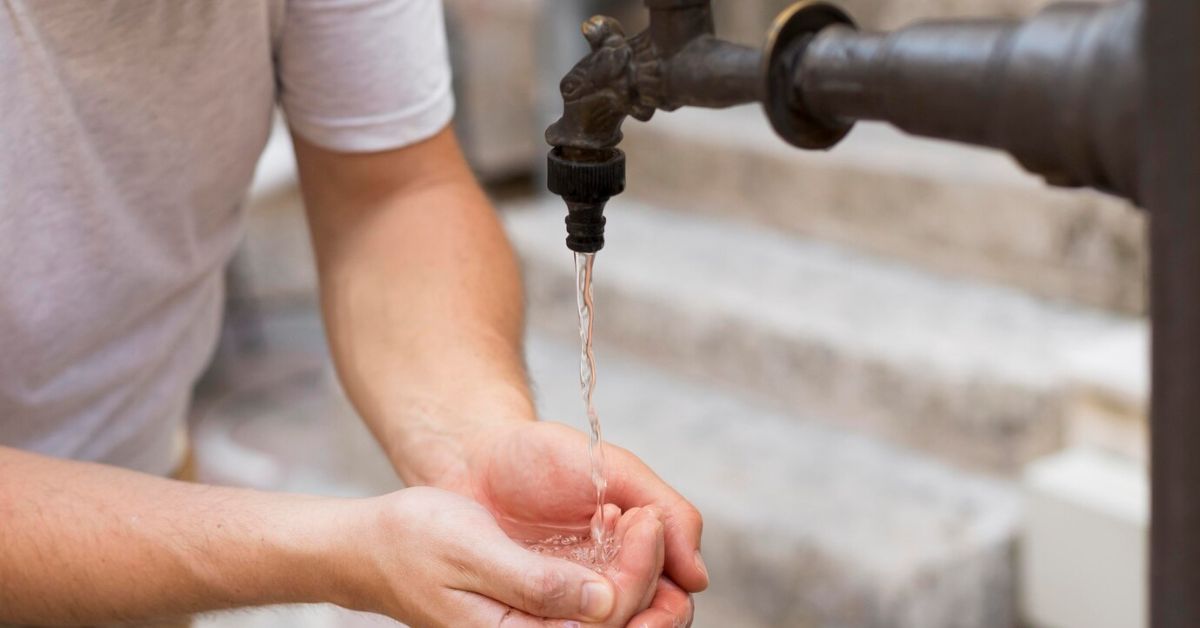Identifying the Cause of Odor
For many homeowners, the quality of their well water is essential to their home’s overall comfort and health. However, peculiar odors from well water can quickly become a nuisance, disrupting daily life and creating concerns about water safety.
Mapping out the source of the odor in well water is the pivotal first step. Commonly, odors result from hydrogen sulfide gas, notorious for its rotten egg smell. This gas can form from sulfur bacteria activity, which thrive in environments low in oxygen, such as deep wells or pipes. Bacterial reactions to organic materials or metals can also taint the water with a metallic or earthy scent. Addressing these root causes requires understanding the biological and chemical processes at play. Gaining insight into the interaction between water quality elements is crucial.
Common Odors and Their Implications
Understanding the variety of odors from your well water helps narrow down potential causes. For instance, metallic odors often arise from dissolved iron or manganese, which can leach into water from natural deposits or corroded pipes. A medicinal or bleach-like smell may indicate the presence of chlorine or other treatment chemicals, possibly pointing towards issues with over-treatment or contamination. Meanwhile, water that smells musty or earthy might be loaded with decaying organic matter from nearby natural sources, such as fallen plant material or seasonal algae blooms affecting the well’s recharge area. In some cases, homeowners may ask, “Why does my well water smell like rotten eggs?”—a common concern usually tied to hydrogen sulfide gas, which can develop due to bacterial activity or chemical reactions in the groundwater. Early recognition of these odors not only helps diagnose water quality problems but also plays a role in preventing potential health risks linked to prolonged exposure to certain substances.
Testing Your Well Water
Regularly testing well water is a preventive measure that ensures any deviations in water quality are quickly identified and rectified. Home testing kits are readily available and can offer a basic assessment of elements like pH, iron, sulfur, and bacterial presence. However, for a detailed analysis, professional water testing services are recommended. These professionals utilize more sophisticated testing methods, providing a clearer picture of water composition and identifying potential contaminants that might go unnoticed in-home tests. Testing intervals can vary, but annual testing is typically suggested to maintain awareness of the water’s quality status.
Solutions to Sweeten Your Water
Once the cause of the odor is identified, implementing solutions becomes straightforward. Immediate actions include aeration, a simple yet effective method where introducing air into water helps evaporate soluble gases like hydrogen sulfide, thus mitigating the smell. Another short-term solution could be activated charcoal filters, known for their ability to trap impurities and remove odors. For more persistent issues, long-term solutions may involve installing whole-house water softeners. These systems can handle multiple concerns by reducing the concentration of minerals such as iron and manganese that often cause metallic smells. Additionally, more sophisticated filtration systems can be installed to physically and chemically filter out a broad spectrum of contaminants, safeguarding water purity across different levels of use in your household.
Regular Maintenance and Inspection
The importance of routine maintenance and inspection cannot be overstated. Regular check-ups of your well and plumbing system prevent small issues from escalating into complex problems. This process often involves checking the pressure tank, ensuring the seal integrity of well caps, and inspecting the condition and functionality of pumps and filters. Annual inspections by certified professionals can ensure that all components are in good working order and can catch potential problems early. Moreover, routine maintenance reduces the risk of unexpected breakdowns, ensuring a steady supply of fresh and odor-free water throughout the year.
When to Call in the Experts
Despite best efforts, the odors might persist in some cases—this is when expert intervention becomes crucial. Professionals bring a wealth of experience and advanced diagnostic tools that help uncover underlying issues that may not be immediately apparent. When choosing a professional, seeking out individuals or companies highly rated for their expertise in well-system maintenance and repair is vital. An experienced, well-service provider will employ a methodical approach, using hydraulic, chemical, and mechanical solutions as necessary to resolve even the most stubborn issues. Their work contributes significantly to your immediate water quality concerns and the long-term sustainability of your well system.
Overall, while odors in well water can be an unwelcome surprise, understanding their causes and implementing thoughtful solutions can greatly enhance the quality and safety of your water supply. Regular maintenance and proactive testing are cornerstones of efficiently managing any issues, safeguarding the water’s integrity, and contributing to a healthy household environment.











